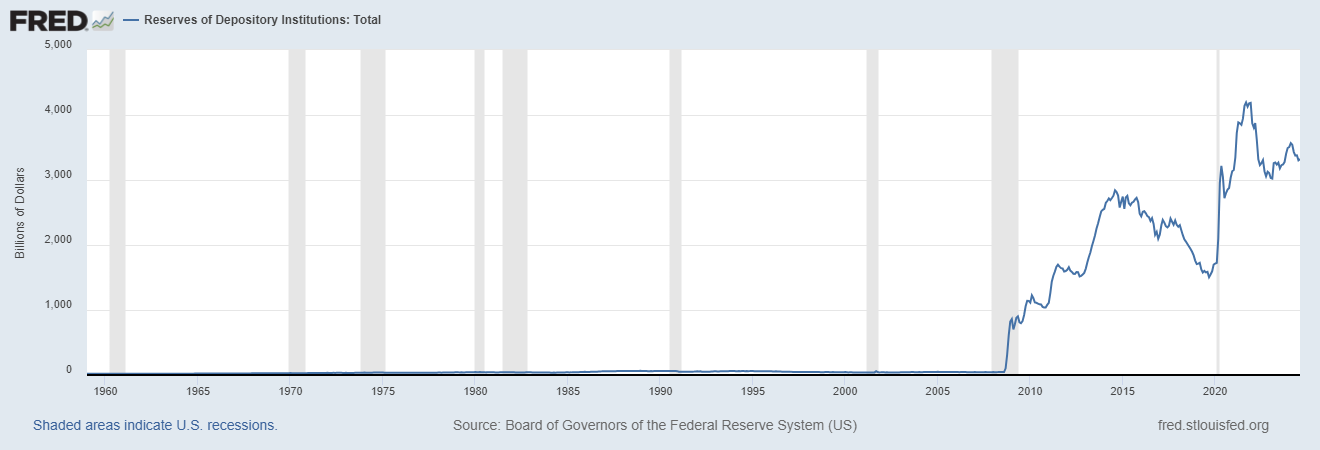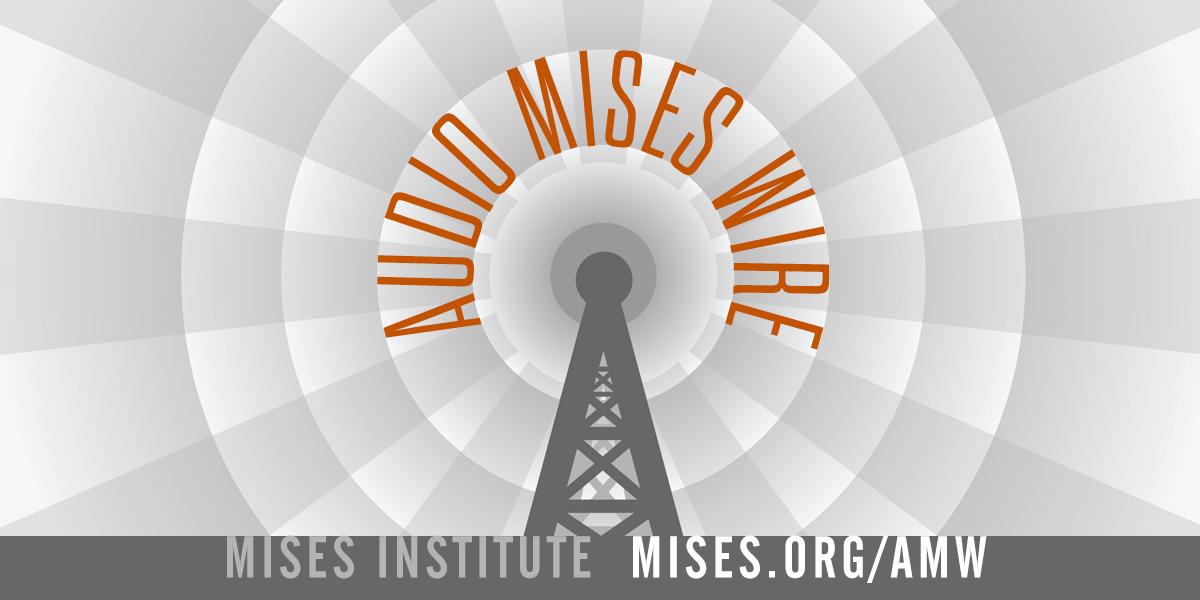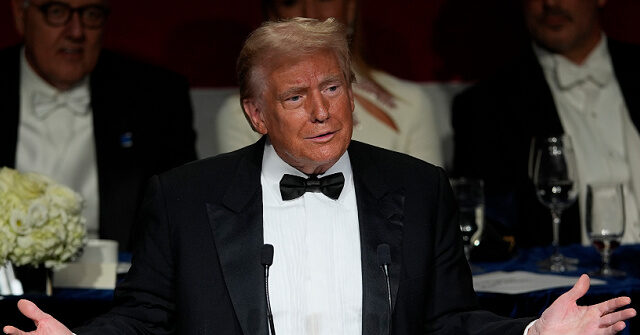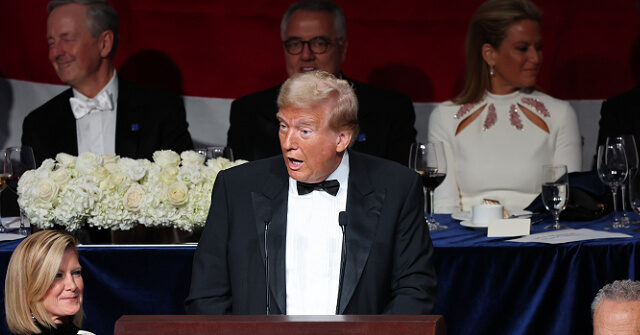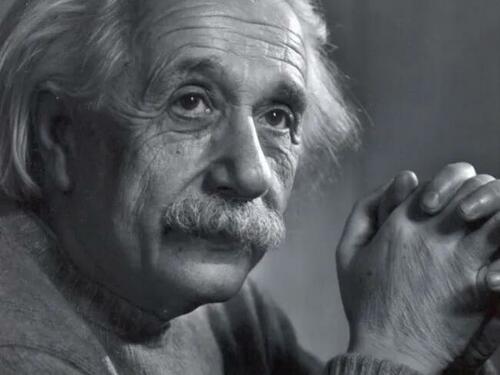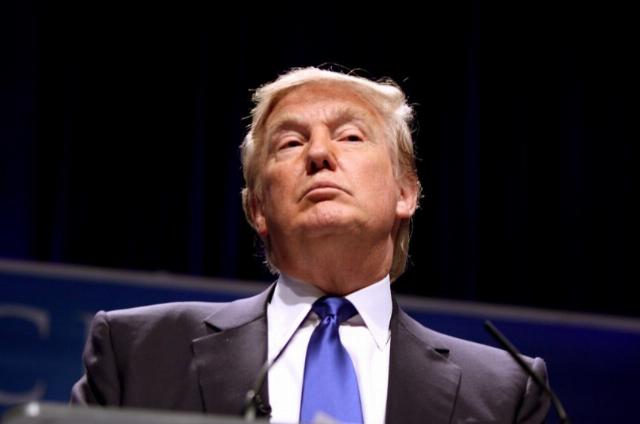Mexico Moves To Amend Constitution To Favor State Power Firm
Mexico Moves To Amend Constitution To Favor State Power Firm
Authored by Tsvetana Paraskova via OilPrice.com,
Mexico’s Senate approved amendments in the constitution that give preference to state electricity firm CFE over other companies in dispatching electricity to the system.
The constitutional amendment was passed in the Senate with 86 votes in favor to 39 against. This met the requirement of a two-thirds majority of votes in favor of amending the constitution.
Mexico’s new President Claudia Sheinbaum continues the policies of her predecessor Andres Manuel Lopez Obrador to support and favor the state energy majors, including oil firm Pemex and the state-owned power company Comision Federal de Electricidad (CFE).
The constitutional amendments favoring CFE will come into force after it passes a majority of state legislatures and is published in the official gazette.
Under the change, national grid operator Cenace will be required to take first and prioritize electricity from the power plants owned and operated by the state company CFE regardless of the price and whether it is more expensive than the electricity generated from private power producers.
The new Mexican Parliament is also moving to give the president more control over Pemex and CFE.
Despite the reclassification that would give the government a greater say in Pemex operations, the new government is in favor of the company working with private companies to develop the country’s oil and gas resources.
Mexico currently produces around 1.5 million barrels per day (bpd) of oil, down from a peak of 3.4 million bpd some 20 years ago.
Underinvestment has plagued the industry for years, which was the motivation for the Pena Nieto administration’s reforms that invited foreign players into the local industry.
When former president Lopez Obrador came into power, he did away with the reform, launching reviews of existing contracts with foreign entities on allegations of corruption.
As a result, Pemex has failed to increase oil production as planned by the government. In August, the latest month with available data, production dipped below 1.5 million bpd.
Tyler Durden
Fri, 10/18/2024 – 06:30
Who Starts Business Cycles? Banks or the Fed?
Are Austrian economists clinging to an old-fashioned view of banking? In short, no, and here is why.
The Present Monetary System Is Heading for a Breakdown
As monetary authorities continue to inflate the money supply, they inflict more and more damage upon the currency. Unfortunately, as the economy falters under the inflationary regime, the “solution” always is to ramp up inflation.
Gold breaks above $2,700 to record high
Gold prices hit a record high above $2,700 on Friday as traders piled into the safe-haven commodity at a time of heightened geopolitical uncertainty, including in the Middle East after Israel said it killed Hamas chief Yahya Sinwar. Bullion hit an all-time high of $2,704.89 in early Asian trade, up from its previous record of […]
The post Gold breaks above $2,700 to record high appeared first on Insider Paper.
Ukraine the Origin of World War III
by Martin Armstrong, Armstrong Economics: QUESTION #1: Why does the West hail Zelensky when I have family in Ukraine who see him as a traitor to Ukraine? Asking Turkmenistan to arrest Putin is asking them to commit suicide. Zelensky is a war criminal, for he takes orders from the West against his own people. Your 172-year […]
The US Fears An Uncontrollable Escalation Sequence With Russia Much More Than With Iran
The US Fears An Uncontrollable Escalation Sequence With Russia Much More Than With Iran
Authored by Andrew Korybko via Substack,
Politico cited a senior Senate aid and two sources in the Biden Administration to report on Wednesday that the US is much more afraid of an uncontrollable escalation sequence with Russia than with Iran due to the first’s nuclear capabilities.
As proof of this, the US has no qualms about shooting down Iranian missiles launched against Israel but won’t consider shooting down Russian ones launched against Ukraine, which has upset Zelensky and some of his compatriots who thus feel like second-class allies.
The difference between Russia/Ukraine and Iran/Israel in this regard accounts for the US’ different approach towards each pair.
As was explained last month in this analysis about why “Putin Explicitly Confirmed What Was Already Self-Evident About Russia’s Nuclear Doctrine”, the comparatively more pragmatic policymakers who still have the final say in Russia and the US have thus far managed to avoid the uncontrollable escalation sequence that their respective hawkish rivals want.
Here’s how they did it:
“[The US hawks’] comparatively more pragmatic rivals who still call the shots always signal their escalatory intentions far in advance so that Russia could prepare itself and thus be less likely to ‘overreact’ in some way that risks World War III. Likewise, Russia continues restraining itself from replicating the US’ ‘shock-and-awe’ campaign in order to reduce the likelihood of the West ‘overreacting’ by directly intervening in the conflict to salvage their geopolitical project and thus risking World War III.
It can only be speculated whether this interplay is due to each’s permanent military, intelligence, and diplomatic bureaucracies (‘deep state’) behaving responsibly on their own considering the enormity of what’s at stake or if it’s the result of a ‘gentlemen’s agreement’. Whatever the truth may be, the aforesaid model accounts for the unexpected moves or lack thereof from each, which are the US correspondingly telegraphing its escalatory intentions and Russia never seriously escalating in kind.”
There’s no equivalent balance of nuclear power between the US and Iran, with the most that Iran can do is launch saturation strikes against American bases in the region, not existentially threaten it like Russia can.
If Iran’s potential retaliation to Israel’s expected strike harms or kills some of the nearly 100-member team operating the US’ THAAD in the self-professed Jewish State, then the US could either take the hit, retaliate against Iranian-aligned Resistance groups in the region, or strike the Islamic Republic.
Regardless of whatever might happen, non-nuclear Iran is incapable of existentially threatening the US like nuclear-armed Russia could if the latter retaliated to the interception of its missiles by hitting targets inside of NATO, which could easily catalyze a possibly apocalyptic escalation sequence.
To be sure, there are indeed some US hawks who want to risk that scenario and the abovementioned comparatively less consequential one in West Asia, but their more pragmatic rivals are still able to stop them for now.
Tyler Durden
Thu, 10/17/2024 – 23:25
Trump Gets Laughs at Al Smith Dinner, Roasting Harris, Biden, Media Elite
Critics praised former President Donald Trump’s performance at the Al Smith Dinner on Thursday as one of his funniest speeches of all time.
The post Greatest Hits: Trump Gets Big Laughs at Al Smith Dinner, Roasting Harris, Biden, Media Elite appeared first on Breitbart.
Trump Jokes Harris Skipped Al Smith Dinner to Get Communion from Whitmer
Former President Donald Trump flamed Vice President Kamala Harris for snubbing the Al Smith Dinner in New York City on Thursday, joking that she is “receiving communion” from Gov. Gretchen Whitmer (D-MI).
The post Trump Jokes Kamala Harris Skipped Al Smith Dinner to Get Communion from Gretchen Whitmer appeared first on Breitbart.
Albert Einstein & The Folly Of Marxist Sympathies
Albert Einstein & The Folly Of Marxist Sympathies
Authored by Kgatlhiso Darius Leshaba via The Mises Institute,
In the year 1949, the first issue of the socialist publication Monthly Review was released. Within the collection of essays, one stood out in particular. Notably, its author was none other than Albert Einstein. Somewhat misleadingly titled “Why Socialism?” the essay reads more like a critique of capitalism than a justification of socialism. In it, the brilliant physicist lays out his reasons for rejecting private property and briefly sketches out his vision for a moral and just society.
Now, 75 years after the first appearance of the essay, I believe a critical analysis is in order.
Einstein begins his essay by justifying his (and other non-economists) right to chime in on the debate about socialism. While I agree with the broad sentiment, the specific points strike me as worryingly naive. The first is that, due to the fact that since the history of most states is one of violence and coercion, conventional economic theory, as a product of the past “predatory phase” of human development, is ill-equipped to “throw…light on the socialist society of the future.”
This seems to imply that not only should non-economists’ opinions be considered just as valid as professional economists, but that the opinions of economists are tainted by the context of their formation, and thus not adequate to comment on the nature of the future socialist paradise. At some point or another, socialists must come to realize that the nature of their envisioned society must be investigated if they are going to avoid repeating the catastrophes of the 20th-century experiments. An analysis of the incentives of such a system is crucial for evaluating if such a system would indeed serve as an improvement to the current state of affairs. The only field of study with the tools for this is economics, in all its depth and breadth.
The second point made is one I wholly agree with, that economics as a science cannot choose ends, but can only inform the means for the attainment of desired ends. Thus, the question of what ends should be chosen lies outside the field of economic analysis, but the analysis of the means chosen for the attainment of desired ends is fair game.
Einstein then goes on to lay out a brief theory of the relationship between the individual and her society. The main point in what he terms the “crisis of our time” is that the willful dissociation of individuals from their group identities leads to a nihilistic isolation for which capitalist societies are to be blamed. Einstein seems to fail in recognizing society as an abstract concept representing numerous individuals and their various interactions, direct and indirect, across time.
Einstein then goes on to state that the modern individual depends wholly on “society,” however, this isn’t the entire picture. Since society is an abstract sum of individuals, it’s better to (at least partially) disaggregate the concept of society and understand that an individual’s interaction with society is ultimately just an interaction between individuals. One is not in a parasitic relationship with the society they belong to, the relationship is mutualistic. Man does not simply receive “food, clothing, a home, the tools of work, language,” man must also provide something of value to society. It may, therefore, be true that the dependence of the individual on other people’s efforts is a fact of nature, but the opposite—that the relative success of other people’s efforts relies on the efforts of the individual—is true as well.
Einstein fails to realize that the pushback against the desires of the group often arises from coercive attempts to enforce those desires, rather than from a rejection of interdependence altogether. Einstein even makes the claim that the way people find meaning is by serving the desires of the group. There is an important qualification that is missing here—that if they do decide to serve the desires of the group, it must be voluntary and not coerced.
Here is where we begin to run into Einstein’s “Marxist” critiques of capitalism.
We start off with the Marxist exploitation theory, built on the back of the labor theory of value. Einstein says, “…what the worker receives is determined not by the real value of the goods he produces…”
The first problem we run into is the concept of value. It has been firmly established that economic value isn’t intrinsic, that, “The measure of value is entirely subjective in nature.” Value is not transferred somehow from labor to product. In fact, the direction of the imputation of value is exactly the other way around. The economic value of labor is determined by the value of the final product it aids in producing. Therefore, I agree with Einstein, worker pay isn’t determined by the “real value” of what they produce but only because it cannot be determined by something that doesn’t exist. Einstein also seems to believe in the outdated subsistence theory of wages which had long since been disproven by the time Einstein’s essay was published.
Einstein then goes on to cite wealth inequality and the resulting distortion of the political landscape by private special interests. He is correct in that the market economy does not make people equal as there is no reason to expect it to do so. People are different, masters of different skills and trades (trades that are valued differently by consumers), leaving little reason to expect remuneration for their various services to be remotely equal. Rent-seeking doesn’t stop, however, just because resources are centrally controlled. Inequality isn’t unique to capitalism.
Einstein voices displeasure with the fact that most sources of information (media, education, etc.) are privately owned and sees this a limiting factor in individuals’ ability to make objective decisions and their ability to make effective use of their political rights. One would think that, having had to flee from a state which had taken total control of the media, Einstein would know that the criticisms he levies against private ownership of media and education are more effective against these institutions being centrally controlled. Absent a monopoly, private ownership of the media and schools allows for a pluralistic society, where people are more likely to encounter competing viewpoints, and thus does better in the quest for mitigating misinformation. This makes coming to objective conclusions more likely than if there was a single, centrally-owned and -controlled source of information.
Einstein then goes on to criticize the profit motive. “Production is carried on for profit, not for use” he says, not understanding the emptiness of his statement. Entrepreneurs produce goods that they believe consumers will find useful in satisfying their desires. If consumers judge the goods produced as useful, they patronize the business and the entrepreneur enjoys a profit. Thus, profit represents the entrepreneur’s success in providing goods and services that consumers find useful and valuable. Saying “production is carried on for profit” is just another way of saying production is carried on for the use of the consumers. I prefer not to comment on the faults of the Marxist theory of business cycles and simply let the record of history prove that there isn’t much of a relationship between the passage of time and the severity of depressions.
Einstein ends by saying that the only way he sees for eliminating these “evils” is through the establishment of a socialist economy, accompanied by an education system that is oriented towards “social goals.” With little discussion of the mechanisms of such a system, one gets the idea that Einstein hasn’t thought this matter through much. The ownership of the factors of production by “society” and their utilization in a “planned fashion” isn’t even demonstrated to be plausible. We are to take him by his word that such a system would improve our standard of living without any critical analysis. Einstein relegates the possibility of repression at the hands of the state to the final few sentences of his essay, ending with sentiments which echo the claim that state ownership of the means of production is not “real socialism.” Although he raises some pertinent questions, he provides no answers.
It is telling that many of these same arguments raised by Einstein are raised by disgruntled Zoomers with socialist sympathies.
It would almost seem as though, as brilliant a thinker as Albert Einstein was, he was unfamiliar with economic theory and evidence that ran counter to the Marxist narrative, much like modern-day naive college socialists. Even where we agree, such as the hand inequality plays in distorting politics, he fails to show that it’s uniquely under capitalism that power dynamics can be skewed.
This is because none of the criticisms levied can be laid down at the feet of capitalism, merely removing the market economy will not solve the great “evils” but only change the way these evils manifest themselves in society.
Tyler Durden
Thu, 10/17/2024 – 17:45
BRIC by BRIC
by Craig Hemke, Sprott Money: BRICS Summit 2024: Will a New Gold-Backed Currency Challenge the U.S. Dollar? The annual summit meeting of finance and prime ministers of the BRICS nations is scheduled for next week. There have been rumors of a plan to offer an alternative currency for use in trade between member nations. Will […]

Donald Trump Jr accuses Biden admin of trying to start World War 3 before his father can take office



